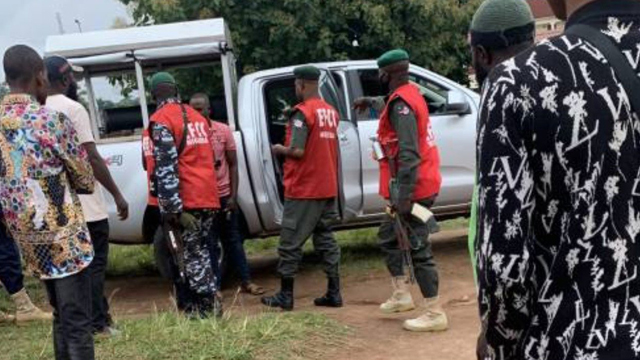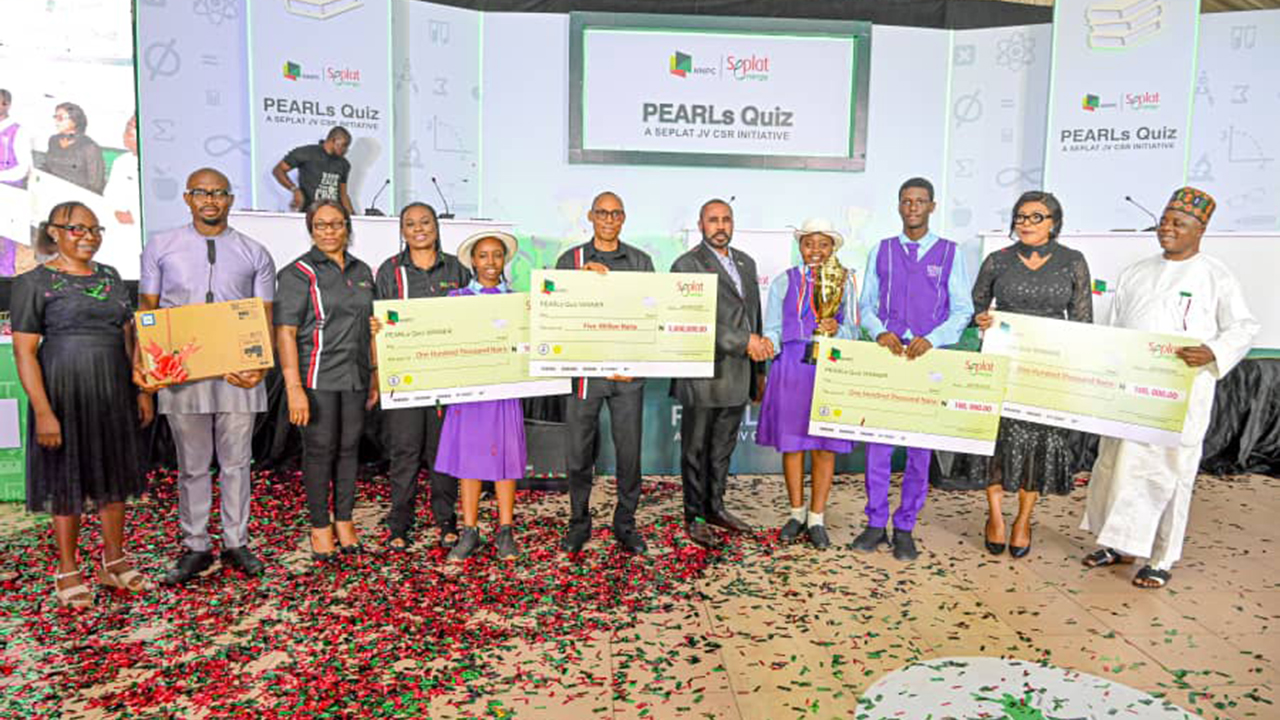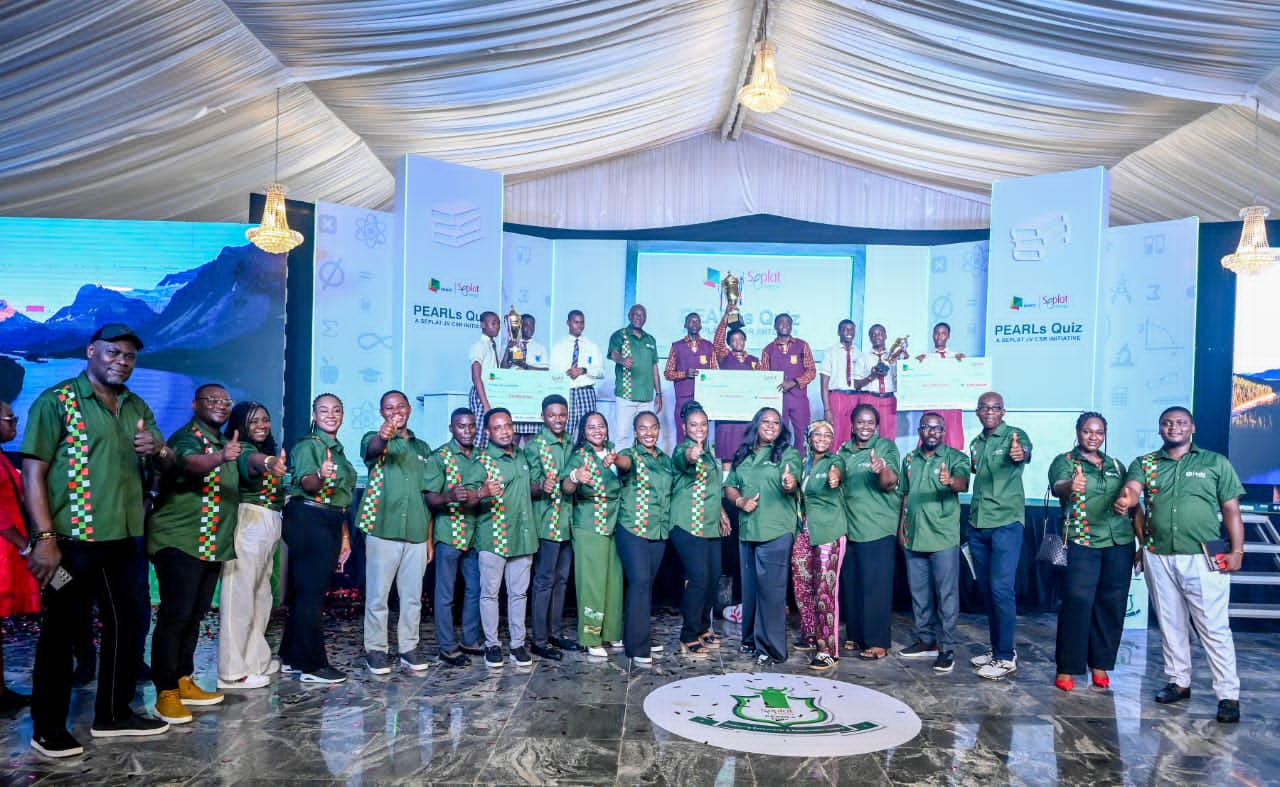[dailymotion code=”x8bz5h5″ autoplay=”yes”]
Without mincing words, and judging from reports released by local and international observers, as well as civil society organisations, etc, political parties and politicians constitute the greatest contributors to electoral fraud in the country.
The active deployment of billions of naira for all shades of voter inducement, including the atrocious vote-buying if left unchecked, would contribute to the gradual erosion of whatever little gains that the improved 2022 Electoral Act may have conferred on the system.

Indeed, the scenario that played out during the last two off-season elections in Edo and Ekiti states, as well as during the recently concluded party primaries of the ruling All Progressives Congress (APC), the opposition People’s Democratic Party (PDP), among others, suggests that the abominable practices are getting deeply rooted, while the government that promised to champion electoral reforms and bequeath a culture of free, fair, credible election to the country plays the Ostrich.
Ahead of the primary election, a retired Inspector General of Police, Sir Mike Mbama Okiro, had cautioned against the dangers of selling and buying votes during presidential primaries of registered political parties in the country, and the forthcoming general elections in 2023.
Speaking at a “Presidential Aspirants’ Media Interactive Platform,” organised by New Nigeria Dream Initiative (NNDI), Okiro implored Nigerians to reject corrupt politicians that go all out to buy votes.
He said: “Nigerians will talk about the leadership deficiency, but I say no, that is not enough. It takes two to tangle. If leaders have deficiencies, we have followers’ complacency because if leaders are misbehaving, we just laugh, wave at them, and say, ‘walk and go.’ And they will do the same thing again. But if we say no, enough is enough! they will change. They give you money for votes so that you can vote for somebody, whether the person can perform or not…”
From all indications, Okiro’s admonition was not heeded, as vote-buying allegedly went on massively at the different convention grounds.
BE that as it may, one organisation that was not under any illusion that massive vote-buying would hallmark the Ekiti State gubernatorial poll, is Kimpact Development Initiative, a non-governmental organisation.
Kimpact’s Executive Director, Mr. Bukola Idowu, while speaking ahead of the poll said that security agencies owed the country the responsibility of professionally curbing the menace.
“KDI is predicting a ridiculous widespread of vote-buying during the Saturday election, particularly in Ekiti Central Senatorial District. INEC and security agents should be up and doing during the election,” Idowu said.
In their avowed bid to turn the country’s brand of democracy into “cash and carry democracy,” politicians have continually devised means of exploring every single lacuna in the nation’s election management system.
Worse still, despite the viral trending videos, photographs, and sundry evidence of the voter inducement that took place in Ekiti State, the Federal Government has not said a word in condemnation of the widespread malpractice.
And while politicians strive hard to circumvent every rule meant for the good of the electoral process, the failure of the government to come down hard on perpetrators of such criminality, aligns with the view of India’s founding father, Jawaharlal Nehru who, decades ago, insisted that “evil unchecked grows, evil tolerated poisons the whole system.”
THE Federal Government’s taciturn nature perhaps informed the Socio-Economic Rights and Accountability Project (SERAP’s) decision to call on the Federal Government to prosecute vote-buyers or face legal action.
In a June 18, 2022-dated letter signed by SERAP’s deputy director, Kolawole Oluwadare, the organisation said: “Corruption of the ballot box intrudes on the freedom of Nigerian voters to make up their minds. Vote-buying and other forms of electoral corruption freeze out the less wealthy candidates and parties.
“Wealthy candidates and their sponsors ought not to be allowed to profit from their crimes. We are concerned that impunity for vote-buying and electoral bribery is widely prevalent in Nigeria, as perpetrators are rarely brought to justice,” the letter said.
It added: “If voting is as important as INEC always claims it is, now is the time to end the buying of democracy by wealthy politicians and their sponsors.”
“Vote buying encourages poor governance and weakens citizens’ capacity to hold their ‘elected officials’ accountable for their actions,” it said, adding, that when political candidates or their sponsors decide to buy the support of the people rather than contest fairly for their votes, there are possibilities that such candidates and sponsors will show a disregard for democratic rules and a disposition to adopt illegal means becomes inevitable.”
“Vote buying is entirely an act of election malpractice connected with vested interest since an election can be said to be free and fair when it is devoid of vote-buying, ballot snatching, and intimidation,” it added.
“Your commitment to these issues will demonstrate to the voters that INEC is ready, willing, and able to combat vote-buying and electoral bribery, and reassure Nigerians that INEC will do everything within its mandate to ensure that the 2023 general elections are not tainted by corruption,” the civil society group said.
SERAP, which pointed out that “one of the people’s most sacred rights is the right to vote, and INEC has a constitutional and statutory responsibility to ensure the effective exercise of the right of all eligible voters to participate in their government in free and fair elections,” added that “vote-buying and electoral bribery, intimidation of voters, ballot snatching and other electoral malpractices and offences undermine the ability of INEC to discharge its responsibilities under Section 153 of the 1999 Constitution (as amended) and paragraph 15(a) of the third schedule of the Constitution, and the Electoral Act 2022.
“The Nigerian Constitution provides in Section 14(1)(c) that, ‘the participation by the people in their government shall be ensured in accordance with the provisions of this Constitution.”
“Section 145(2) of the Electoral Act provides that, ‘a prosecution under this Act shall be undertaken by legal officers of the Commission or any legal practitioner appointed by it.’ Under section 2(b), the commission ‘shall have the power to promote knowledge of sound democratic election processes.
“We would be grateful if the recommended measures are taken within 7 days of the receipt and/or publication of this letter. If we have not heard from you by then, SERAP shall consider appropriate legal actions to compel INEC to comply with our request in the public interest.”
THERE is an African saying that whenever the nanny chews strange leaves, the kids watch with keen interest. That truism was copiously reflects in the Ekiti State governorship poll, which took place barely two weeks after the All Progressives Congress (APC) special convention.
During the convention to elect the party’s presidential standard-bearer for the February 25, 2023, presidential poll, delegates spoke of how they received various amounts of money in foreign currencies from some contenders.
Perhaps regaled by the stories of how delegates came into sudden wealth after the two-day exercise in Abuja, voters in Ekiti State decided to take their turn when about 750, 000 voters filed out to elect Governor Kayode Fayemi’s successor.
In a state that domesticated stomach infrastructure as an electioneering strategy, voters hankered after pay-to-play as they bargained for higher amounts of money to influence their electoral decision.
Rather than bask in the euphoria of a new Electoral Act, and the many ways that it would aid credible polls, some stakeholders are worried that security agencies were allegedly complicit in the illicit electoral transactions, while others accuse the government of being the major beneficiary hence the main protagonist.
ACCORDING to a governorship aspirant on the platform of the Peoples Democratic Party (PDP), Chief Jonathan Sunday Akuns: “Vote trading in any electoral process undermines the credibility of the outcome of such a process.”
Akuns, who is a former official of Nigeria’s Central Bank (CBN) noted that endemic poverty, pervasive hunger, and a deep-rooted sense of entitlement to public goods by citizens constitute the incentives to engage in vote trading between voters and candidates during elections.
While painting the picture of helplessness and hopelessness of the abnormal development, he contended: “Given that the motivation for trading in votes is at a very personal level, that is between the cohorts, no governing law, nor security agent is capable of subduing or dealing with it.”
Akuns, who pointed out that “a wholesome reform of the electoral process is inevitable,” added that vote trade is a very lucrative venture with knock-on effects on statecraft
“The hubris associated with vote trade coupled with the attendant cleavage to primordial sentiments makes it part of Nigeria’s democratic culture without remorse.”
ALSO, a member of the Seventh Senate, Dr. Emmanuel Onwe, alleged that the “government” cannot do anything proactive or reactive to stop “malpractice” precisely because “the government” benefits from the malpractice.
“The laws are clear on the criminal implications and consequences of electoral fraud, including vote-buying. The security agencies are complicit and will do everything to protect the perpetrators of electoral fraud from the consequences of their criminal actions, and the outrage of the electorate,” the former lawmaker from Ebonyi State stated.
“Electoral fraud, including vote-buying, manipulation of the population, and under-age voting has consistently robbed the country of free, fair, and credible elections since 1957. This is a historical fact,” Senator Onwe observed.
HOWEVER, in his contribution, a former chairman of Bokkos Local Council of Plateau State, Zakka M. Akos, stated: “I may not have the true picture of what transpired at the Edo gubernatorial election, unlike the Ekiti State’s poll, which is fresh.
“The issue of vote-buying is clear in Section 12 of the Electoral Act, which stipulates that anyone who influences a voter with money directly, or through any other person shall be convicted for six months, and or N100, 000 fine.”
Even though there are extant laws against the menace, the willpower to execute the same by prosecuting offenders is lacking. “The government is doing nothing about it, maybe because the government in power is directly or indirectly involved in the process of vote-buying.
Vote-buying is becoming a norm also because the government has so impoverished the society that people can do anything in order to get resources to get by, and that includes selling their conscience.”
On the part of the law enforcement agencies, the former council boss noted that security agencies can do a lot to reduce the menace to the barest minimum, only if they will do what is expected of them.
Vote-buying, he lamented, “is a great drawback to the country’s democratic process. It has robbed the country of credible elections and will continue to do so except if the government decides to demonstrate a true commitment to dealing with perpetrators of these evil acts.
“Where credible candidates do not have money, the bad ones who acquire resources through evil means will continue to rob the nation of good leaders, good governance, and national development,” Akos surmised.
IN his contribution, a chieftain of the PDP, Mr. Emmnauel Macham (JP), regretted that the menace of vote-buying is becoming quite worrisome, and escalating to a very alarming dimension.
“Vote buying is an act of inducing a voter to vote for a particular person or party. It can be in form of monetary or material form, but aimed at influencing a voter,” he said, adding that, “as parties begin buying their ways into office, people are beginning to find their voting rights and powers useless, and are instead trading it for money, or material things. Not only are they seeing it as a means to gain money or other things of value, some are referring to it as a means to also eat from the national cake that politicians enjoy.”
Macham noted: “Political parties that can’t provide capable candidates that can govern the country are now using vote-buying as a way to send their candidates into power. The obvious outcome is the very high possibility that those positions could fall into wrong hands, while the electoral process has become very expensive …,” he stated.
He maintained that for a country, whose citizens have been chanting “we must change,” vote-buying has been acting as a veil blocking their eyes from beholding reality, even as he alleged that the worst is the culpable involvement of government, and its officials in promoting the act at various stages and election cycles.
On the way out of the mire, Macham said: “The first stage to curbing vote-buying is to criminalise it as a serious electoral offense exactly as ballot box snatching. Polling officials who are government officials/representatives have been trained to ensure that voters vote and go away from polling booths quietly. But now, you see them allowing party agents to stay close to the polling booths so that they can see who voted for who.
“The polling unit officials have a role to prevent vote-buying and have the power to do so with the support of security agencies and the cooperation of other political parties. One of the best ways for the government to reduce, or prevent vote-buying is to reduce the high level of hunger in our society, by creating employment opportunities, and create SMEs to help boost the economy.”
Macham called for the full enforcement of sanctions as enshrined in the 2022 Electoral Act stressing, “this law must be forcefully enforced by the government, security agencies, polling unit officials, and political party agents with the support of the electorate.
“The police must also shun partisanship and be empowered to carry out their duties without fear or favour, regardless of how highly placed the perpetrators are. Political parties must begin educating and sensitising their followers against vote-buying and its consequences,” Macham declared.
BOTH the Yoruba Ronu Leadership Forum and the National Consultative Front (NCFront) are of the view that the monetisation of the voting system is dangerous to the democratic system.
President Yoruba Ronu, Akin Malaolu said: “Our leadership forum had followed the primaries of some political parties and noticed their tricks during some of their primary elections. The desire of certain political elements is not only to win through less than decent democratic means, but they are also boastful of their ability to outsmart their opponents, who are politically doomed if they tried to play decently.
“Many may see these dubious formulas as a sign of political gallantry, but our leadership forum obviously will not be in support of wrong practices, nor to even contemplate the act of congratulating political brigands, who must seize the treasury of their states and empty same to achieve victory at any election. At every election year, we have noticed reductions in the population of voters particularly in almost all of South West states due mainly to vote-buying.
“These methods of achieving victories were conspicuous at the last Edo State Governorship election and also in Ondo and now in Ekiti State, where monetisation was brazenly done and openly too. We all have to be worried about this, because the all-important reason for a democratic government to be meaningful in purpose, which is the availability of justice, fairness, prosperity, and happiness is no longer available in all of the 36 states, and the consequences are noticeable. Even with an unpardonable glee, we could see rising unemployment, reduction in productivity, increasing insecurity, epileptic power supply, bad roads, and lack of income amongst many families.”
Malaolu, however, cautioned the political class to wear a human face “else we may suddenly wake up and see chaos everywhere, and the results may leave the entire political class in danger.”
Dr. Yunusa Tanko, who made known NcFront’s position, said the movement condemned in strong terms, the high level of vote-buying and cash inducement, which characterised the seemingly peaceful, and fairly well coordinated Ekiti State elections.
The group demanded “a proper investigation of reported cases of this malfeasance,” while calling for adequate sanctions to curb the ugly trend.
The group, which held its Strategic Review Meeting of key Leaders and Stakeholders of the Movement on Tuesday, June 21, 2022 at the Centre for Values in Leadership (CVL), Victoria Island, Lagos, warned that vote-buying could ultimately mar the outcomes of the 2023 general election, despite commendable improvements in the electoral process hitherto achieved by INEC.
“It is worrisome that despite widespread reports and criticisms against vote-buying and monetary inducement of voters and security personnel in previous elections, INEC has not taken any bold step to bring offenders to justice. Such attitude could be misinterpreted as acceptance, collaboration or helplessness on the part of INEC, if not confronted urgently and drastically.”
The movement suggested the deployment of intelligence-enabled technology, training of electoral, security personnel, and other reliable evidence-gathering methods to bring an end to the dangerous trend.






